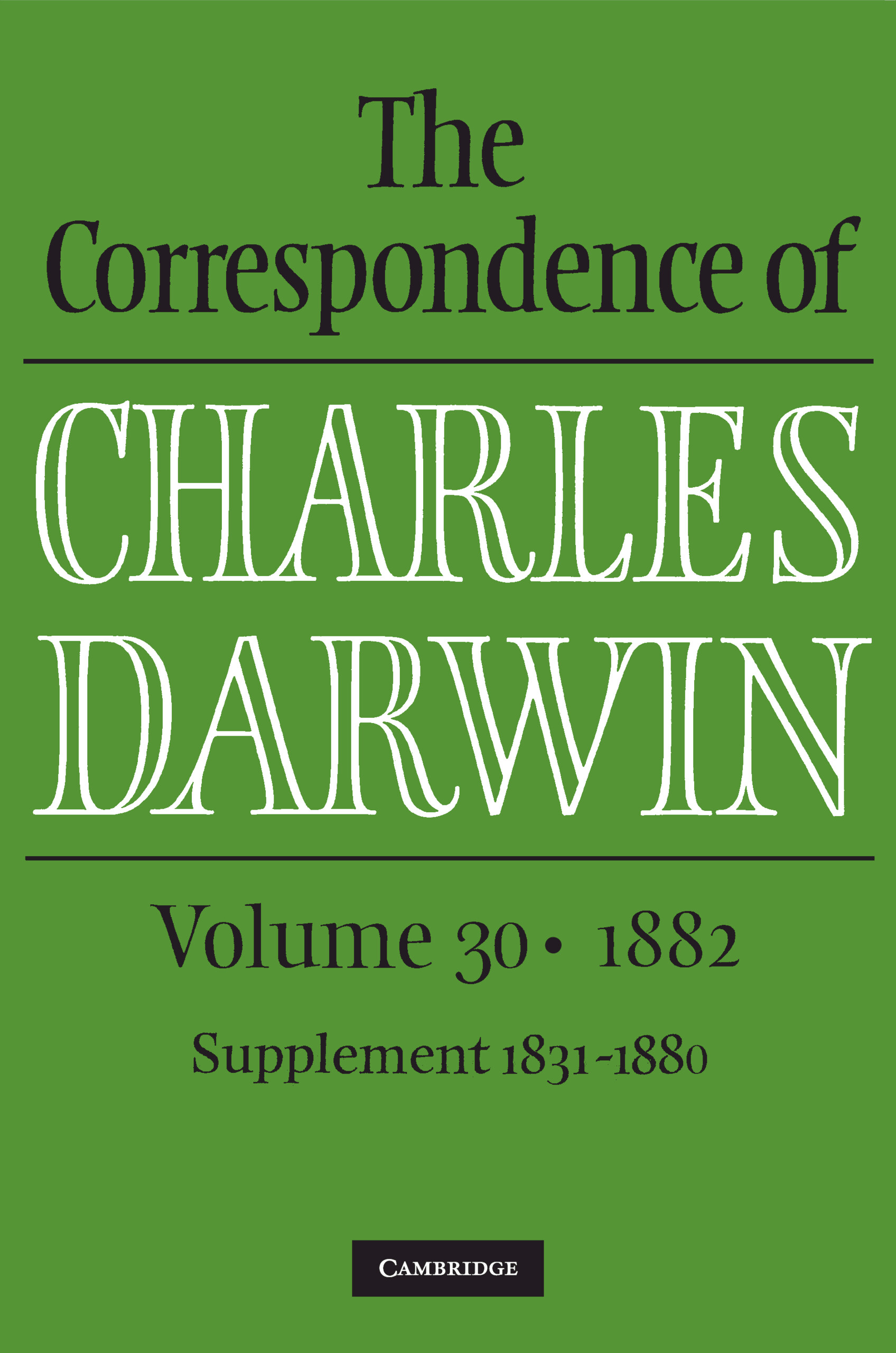… this virtually flawless edition sets a high standard … (Citation, Morton N. Cohen Award for a Distinguished Edition of Letters)
With the publication in January 2023 of volume 30 of The Correspondence of Charles Darwin the print edition of Darwin’s letters is complete. After more than forty years of gathering, deciphering, and researching over 15,000 letters, the Darwin Correspondence Project has been brought to a successful conclusion, and the research and editorial group formally disbanded on 31 December 2022. Since its foundation in 1974, more than ninety people were employed by or volunteered with the Project in both the UK and US, in successive teams. Recognised as one of the most significant achievements in the history of science, it set the standard for the publication of historical correspondence: it provided the full texts of all known letters written both by and to Charles Darwin and, through carefully researched notes and appendixes, made them accessible to both researchers and interested readers.
What next for Darwin’s correspondence?
The completion of the print edition is also a beginning. Scholarly publishing changed out of all recognition over the course of the Project’s existence, and, with the generous cooperation of Cambridge University Press, the Project team was able to make the letter-texts and editorial notes published in the volumes freely available online.
Letters continue to come to light and will continue to be added to the digital edition of the Correspondence maintained by Cambridge University Library and supported by funding secured by the Correspondence Project team. A consortium of funders, led by the Evolution Education Trust and joined by the Andrew W. Mellon Foundation, the Alfred P. Sloan Foundation, and the Isaac Newton Trust, came together at the time of Darwin’s bicentenary in 2009 to secure the future of the Project’s work. This not only supported the editing of the last thirteen volumes of the series and the publication of all the letters online, but also sustained an ambitious learning program, and the creation of a range of online resources that together open up the correspondence to a far larger and more diverse global audience than the original founders could ever have imagined.
In 2017 the Project team joined with the creators of other nineteenth-century science correspondence resources to establish Epsilon, where Darwin’s letters may be explored alongside those of his contemporaries.



